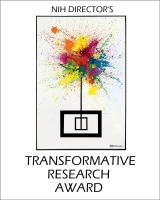2019 Awardees

Eric Alm, Ph.D.
MIT, Broad Institute
Project Title: Epigenetics of the Human Gut Microbiome
Grant ID: R01-ES031576
MPI: Peter Dedon, M.D., Ph.D.
Eric Alm is a biologist studying the human microbiome. A primary goal of his research is to translate microbiome science into new therapeutic options for patients. To realize this goal, his lab has started non-profit organizations like OpenBiome, which has provided material for fecal microbiota transplants to over 50,000 patients with recurrent Clostridium difficile infections, and the Global Microbiome Conservancy, which is working with nearly 100 scientists in over 30 countries to preserve global human-associated biodiversity for future generations.
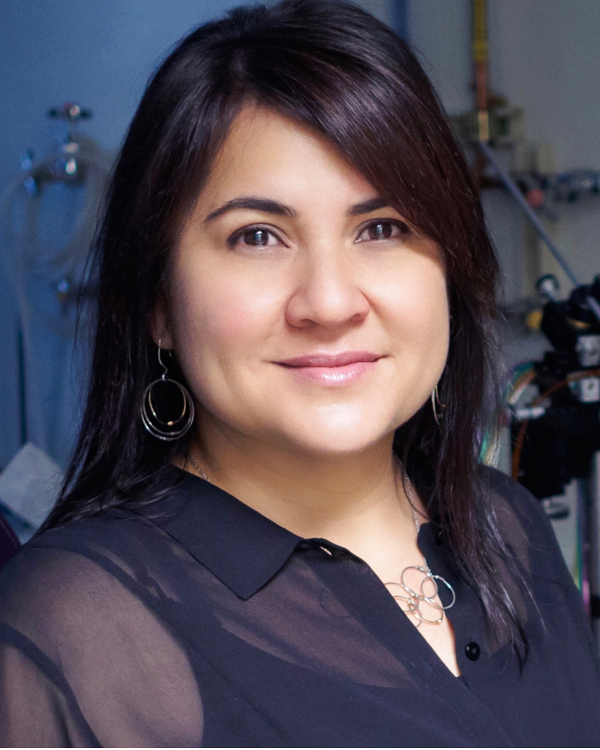
Diana M. Bautista, Ph.D.
University of California, Berkeley
Project Title: Genetic Dissection of Trait Variation Between Long-Diverged Mouse Species
Grant ID: R01-NS116992
MPIs: Rachel B. Brem, Ph.D., Lisa Ellerby, Ph.D., and Eric Verdin
Diana Bautista is a Professor in the Department of Molecular and Cell Biology and the Helen Wills Neuroscience Institute at the University of California, Berkeley. She received a bachelor’s degree from the University of Oregon, her Ph.D. in Neuroscience from Stanford University, and pursued postdoctoral research in Physiology at the University of California, San Francisco. She joined the faculty at UC Berkeley in 2008. Dr. Bautista’s lab studies the molecular and cellular mechanisms of itch, touch and pain, under normal and disease conditions.
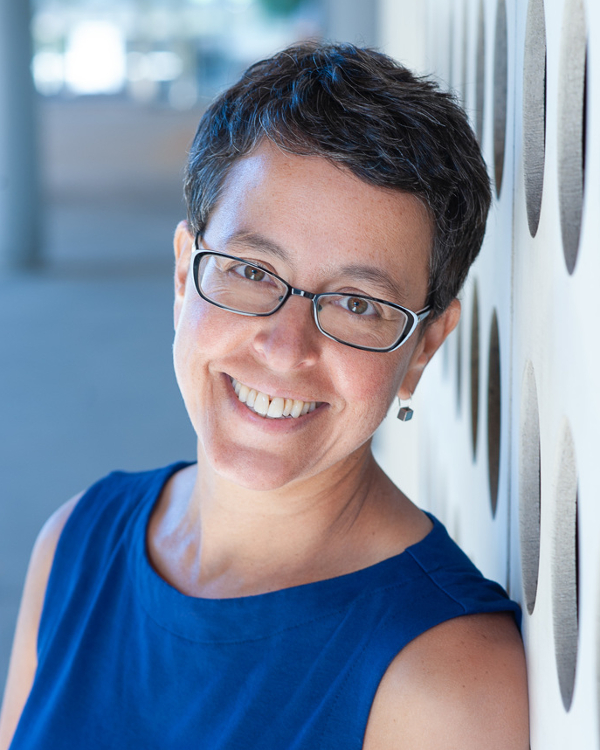
Rachel B. Brem, Ph.D.
Buck Institute for Research on Aging and University of California, Berkeley
Project Title: Genetic Dissection of Trait Variation Between Long-Diverged Mouse Species
Grant ID: R01-NS116992
MPIs: Diana M. Bautista, Ph.D., Lisa Ellerby, Ph.D., and Eric Verdin
Rachel Brem holds faculty appointments at the Buck Institute for Research on Aging and UC Berkeley. She earned a Ph.D. in biophysics from UC San Francisco and was a postdoctoral fellow in statistical genetics at the Fred Hutchinson Cancer Research Center in Seattle. The goal of her lab is to understand how evolution builds new traits, particularly over long timescales. Her work has pioneered the mapping of complex suites of genes that underlie evolutionary innovations between species.
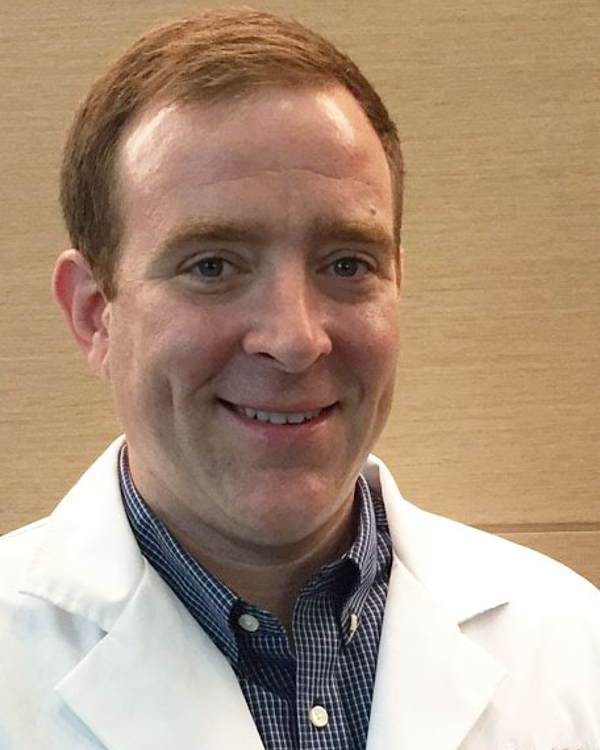
Edward M. Campbell, Ph.D.
Loyola University Chicago
Project Title: Virus-Like Intercellular Communication in the Nervous System
Grant ID: R01-NS115716
MPIs: Thomas Gallagher and Jason D. Shepherd, BSc (Hons), Ph.D
Dr. Campbell is a Professor at the Stritch School of Medicine at Loyola University Chicago. He completed both his undergraduate and graduate studies at the University of Illinois, at the Champaign-Urbana and Chicago campuses, respectively. With his Ph.D. in microbiology and immunology, Dr. Campbell undertook postdoctoral research and training at Northwestern University in the Fienberg School of Medicine, in the lab of Dr. Tom Hope, before joining the faculty of Loyola University Stritch School of Medicine in Chicago in 2008. His research program seeks to understand molecular and cellular mechanisms of diseases, specifically focusing on HIV-1 infection and other retroviruses, the cell to cell transmission of alpha-synuclein in Parkinson’s disease, and cellular inflammatory responses.
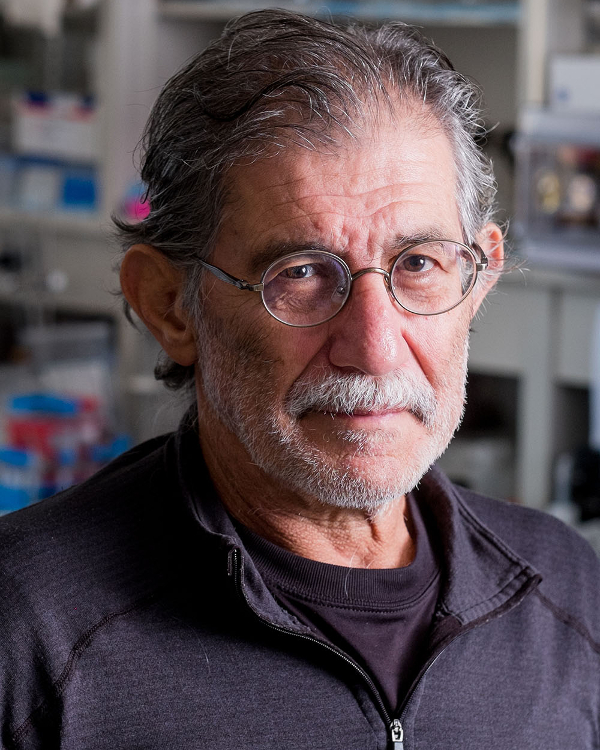
Brian T. Chait, D.Phil
The Rockefeller University
Project Title: Development of Next Generation Mass Spectrometric Instrumentation for Proteomics
Grant ID: R01-GM136654
Brian T. Chait was born in Cape Town, South Africa. He received his B. Sc. (1969) and B. Sc. (Hons) (1970) from the University of Cape Town and D.Phil. (1977) in experimental nuclear physics from University of Oxford. He is currently Camille and Henry Dreyfus Professor at Rockefeller University in New York, where he is Head of the Laboratory for Mass Spectrometry and Gaseous Ion Chemistry. Brian Chait is a leader in the development of novel tools for mass spectrometry, work that has yielded 31 US patents. This ultrasensitive technique can measure the molecular mass, or “weight,” of biomolecules and molecular assemblies—information that can be used to characterize the molecules and their interactions, and ultimately to help understand the molecular machinery within cells.
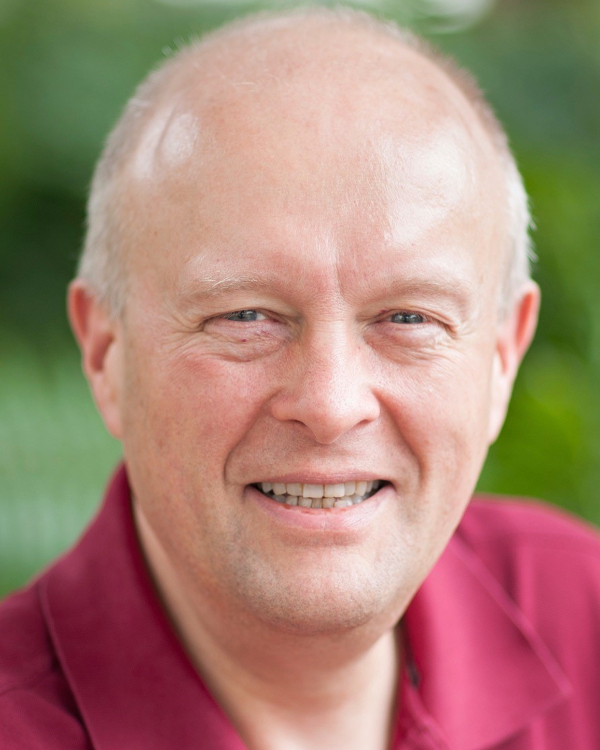
Peter Dedon, M.D., Ph.D.
Massachusetts Institute of Technology and Singapore-MIT Alliance for Research and Technology
Project Title: Epigenetics of the Human Gut Microbiome
Grant ID: R01-ES031576
MPI: Eric Alm
Pete Dedon is the Singapore Professor in the Department of Biological Engineering at MIT, Lead Principal Investigator in the Singapore-MIT Alliance for Research and Technology Antimicrobial Drug Resistance Program, and a member of the MIT Center for Environmental Health Science. With a research program that applies chemical approaches to understanding nucleic acid biology, his research group has developed analytical and informatic platforms for discovery science in epigenetics and epitranscriptomics in infectious disease and cancer. One platform coordinates comparative genomics, sequencing technologies, and mass spectrometry to discover novel epigenetic marks, such as phosphorothioate and 7-deazaguanine modifications in bacterial and bacteriophage genomes in the human microbiome. In the realm of epitranscriptomics, his team has applied systems-level analytics to discover a mechanism of translational control of cell response in eukaryotes and bacteria involving site-specific reprogramming of tRNAs and an alternative genetic code. Pete’s research groups at MIT and in Singapore are leveraging these discoveries to develop new enzymatic tools for biotechnology, new methods for industrial microbiology and protein production, and novel antimicrobial agents in screening- and structure-based drug discovery programs.

Christine Ann Denny, Ph.D.
Columbia University Irving Medical Center and Research Foundation for Mental Hygiene, Inc.
Project Title: Single-Cell and Target-Specific Resolution of Multiple Memories Across the Brain
Grant ID: R01-HD101402
MPI: Steve Ramirez, Ph.D.
Christine Ann Denny, Ph.D. is an Associate Professor of Clinical Neurobiology in Psychiatry at Columbia University Irving Medical Center (CUIMC) and a Research Scientist V in the Division of Systems Neuroscience at the Research Foundation for Mental Hygiene, Inc. (RFMH) / New York State Psychiatric Institute (NYSPI). She received a B.S. from Boston College in 2005, a M.S. from Boston College in 2006, and a Ph.D. in Biological Sciences from Columbia University in 2012, where she investigated the impact of adult hippocampal neurogenesis on behavior in the laboratory of Dr. René Hen. After receiving the NIH DP5 Early Independence Award, she started her own laboratory in 2013. Dr. Denny studies the neural basis of learning and memory in disease states, such as in depression and Alzheimer’s disease (AD). Specifically, she created an activity-dependent tagging murine line, the ArcCreERT2 mice, which allows for the permanent labeling of individual memories.
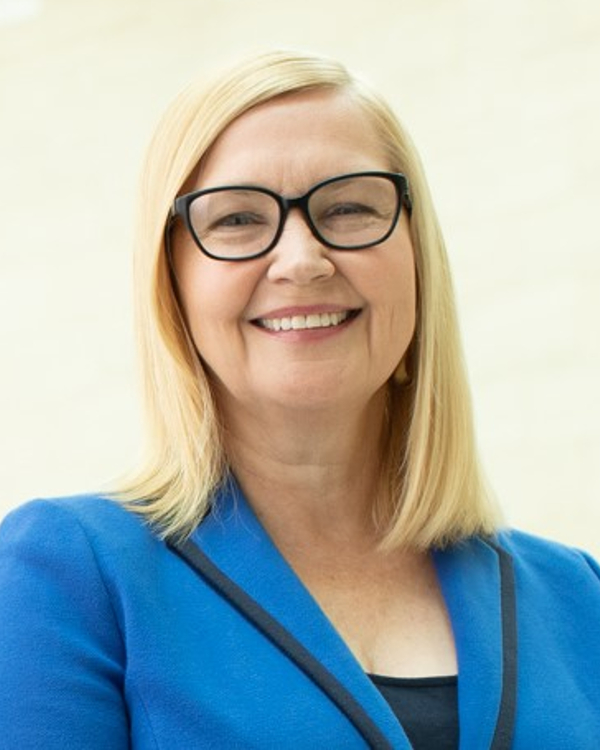
Lisa Ellerby, Ph.D.
Buck Institute for Research on Aging
Project Title: Genetic Dissection of Trait Variation Between Long-Diverged Mouse Species
Grant ID: R01-NS116992
MPIs: Diana M. Bautista, Ph.D., Rachel B. Brem, Ph.D., and Eric Verdin
Lisa Ellerby is a founding faculty member at the Buck Institute. Dr. Ellerby grew up in the Bay Area and received her PhD in chemistry from the University of California, Santa Cruz and carried out her postdoctoral training at the University of California, Los Angeles. During her postdoctoral training she received an American Cancer Society fellowship for her research. Dr. Ellerby has published more than 100 scientific papers and holds more than eight patents. She has served on the National Institutes of Health study group for over 15 years and reviewed for numerous nonprofits, including the Huntington’s Disease Society of America, French National Research Agency, National Ataxia Foundation, and Hereditary Disease Foundation.
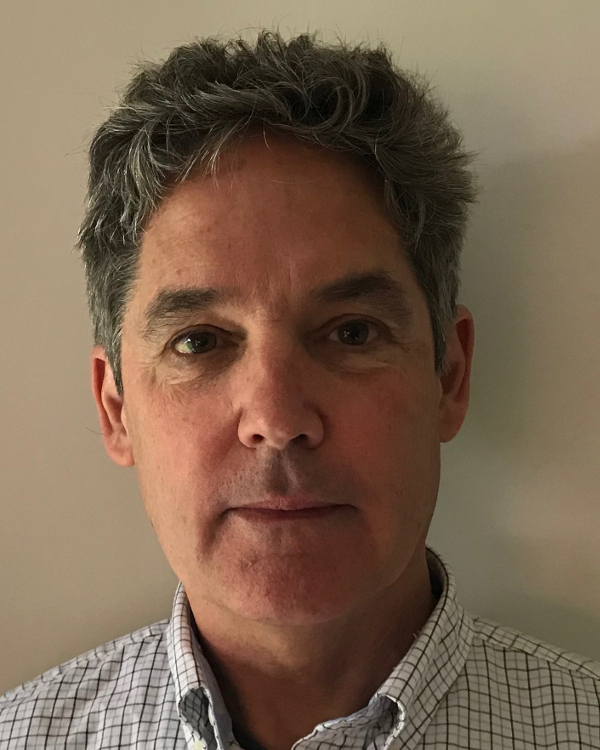
Tom Gallagher, Ph.D.
Loyola University Chicago
Project Title: Virus-Like Intercellular Communication in the Nervous System
Grant ID: R01-NS115716
MPIs: Edward Campbell and Jason D. Shepherd, BSc (Hons), Ph.D.
Tom Gallagher, virologist, is Professor of Microbiology and Immunology. His laboratory has focused on the mechanisms of virus-cell entry. He recently applied his research to understanding inter-cellular cargo transmission mediated by extracellular vesicles, which prompted collaborations with Jason Shepard and Edward Campbell, to evaluate inter-neuronal communications mediated by endogenous retrovirus-like ARC vesicles. He is excited by the new opportunity afforded by the NIH transformative award to expand his expertise to ARC neurobiology and extracellular vesicle operating mechanisms.
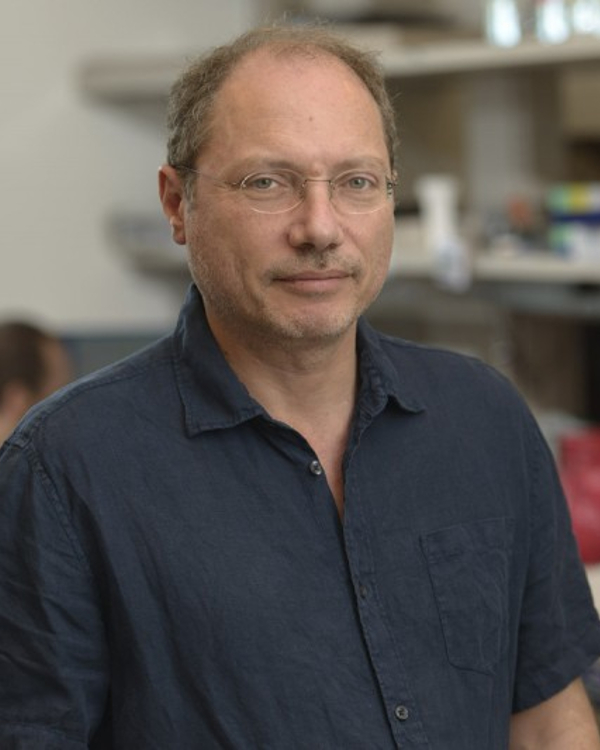
Frederic Geissmann, M.D., Ph.D.
Memorial Sloan Kettering Cancer Center
Project Title: Role of Microglia Somatic Variants in Neurodegenerative Diseases
Grant ID: R01-NS115715
Frederic Geissmann received an M.D. degree from the University of Paris VI-Pierre et Marie Curie, a Ph.D. degree in Immunology from the University of Paris V-Rene Descartes, and postdoctoral training at New York University’s Skirball Institute with Dr. Dan Littman. He was the director of the INSERM research unit 838 in Necker Hospital - University of Paris V-Rene Descartes from 2005 to 2008 and director of the Centre for Cellular and Molecular Biology of Inflammation at King’s College London (London U.K) from 2008 to 2015. Research in the Geissmann Laboratory at Memorial Sloan Kettering investigates the genetic and developmental basis for the functions of macrophages in health and disease states. The laboratory recently proposed that somatic mosaicism introduced in the resident macrophage lineage during development is a cause of late onset neurodegenerative diseases in mice, an hypothesis which is now being further investigated and tested in human patients in the 2019 Transformative Research Research award.
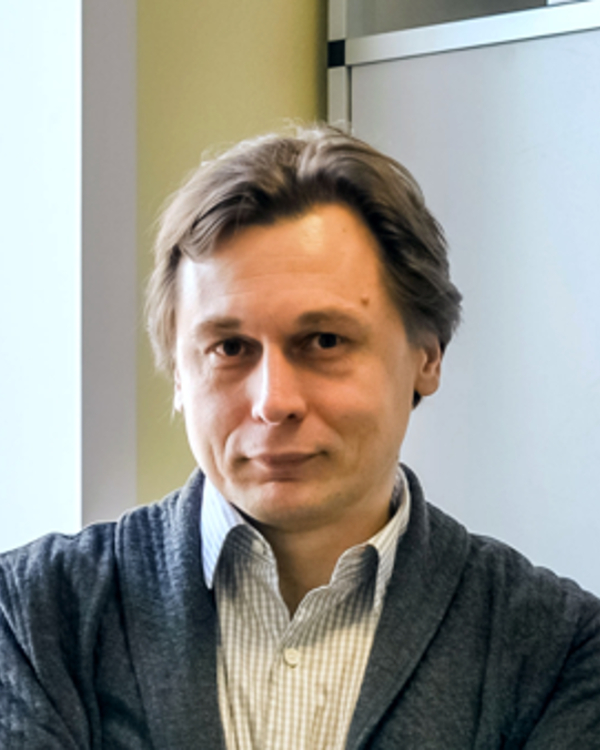
Vadim N. Gladyshev, Ph.D.
Brigham and Women's Hospital and Harvard Medical School
Project Title: Unbiased Identification of Interventions that Extend Lifespan
Grant ID: R01-AG067782
Funded by the National Institute on Aging
Vadim N. Gladyshev is Professor of Medicine at Brigham and Women’s Hospital, Harvard Medical School. He seeks to define principles of lifespan control and use this information to develop interventions that extend lifespan. Dr. Gladyshev has been a recipient of NIH Pioneer and Eureka awards, the Osborne and Mendel Award, and is recognized as a Redox Pioneer. He received his undergraduate and graduate degrees from Moscow State University. Dr. Gladyshev has published 350 articles based on his research.
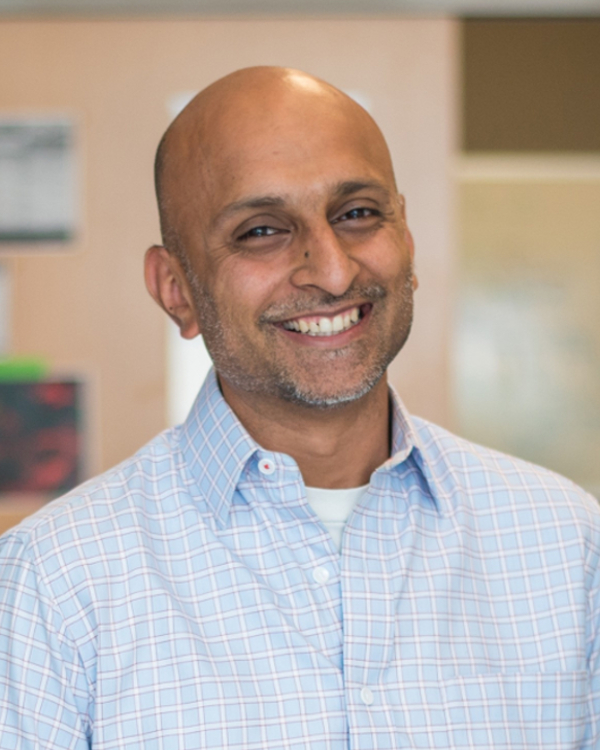
Rajan Jain, M.D.
Perelman School of Medicine at the University of Pennsylvania
Project Title: Decoding the Bridges and Barriers to Cellular Reprogramming and Lineage Identity
Grant ID: R01-GM137425
MPI: Arjun Raj, Ph.D.
Rajan Jain is a physician-scientist and Assistant Professor in the Departments of Medicine and Cell and Developmental Biology at the University of Pennsylvania Perelman School of Medicine. The Jain laboratory operates at the nexus of developmental biology, epigenetics, and medicine, studying how nuclear architecture regulates cellular plasticity, organogenesis, and disease progression. Dr. Jain earned a B.A. in Molecular and Cellular Biology from the University of California, Berkeley, an M.D. from New York University School of Medicine, and completed clinical training in Internal Medicine and Cardiology at the University of Pennsylvania, where he studied the mechanistic basis of lineage specification in multiple tissues. The Jain laboratory is funded in part by the NIH and the AHA and Allen Foundations; Dr. Jain is the recipient of Gilead Research Scholars Program Award, W.W. Smith Foundation Award, Burroughs Wellcome Fund Career Award for Medical Scientists, and NIH New Innovator Award.
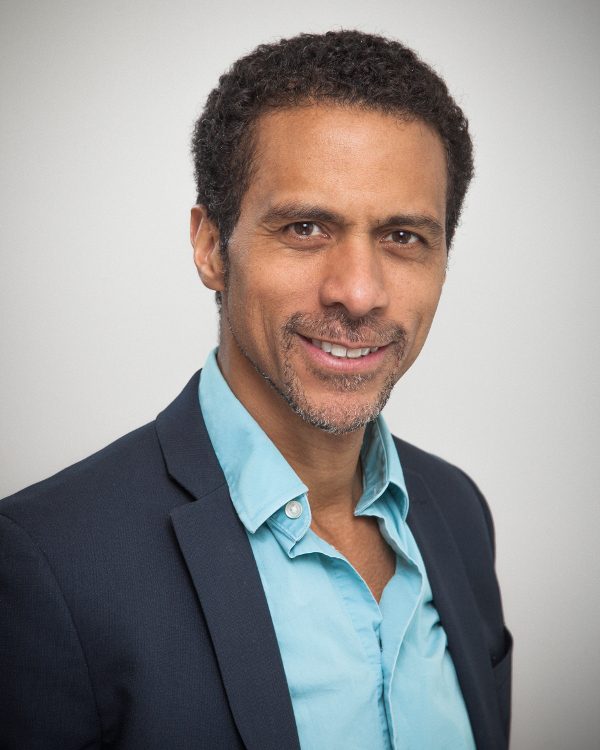
Erich D. Jarvis, Ph.D.
Howard Hughes Medical Institute and The Rockefeller University
Project Title: Neuroengineering a Robust Vocal Learning Phenotype in Mice as a Model for Treating Communication Disorders
Grant ID: R01-DC018691
Erich Jarvis is a professor at The Rockefeller University. He leads a team of researchers who study the neurobiology of vocal learning, a critical behavioral substrate for spoken language. The animal models he studies include songbirds, parrots, and hummingbirds that like humans, have the ability to learn new sounds and pass on their vocal repertoires culturally, from one generation to the next. They also study mice and other species that do not have these abilities in order to find out what is unique to vocal learners. Jarvis hopes to advance knowledge of the neural and genetic mechanisms of vocal learning and spoken language, and more broadly, gain a deeper understanding of how the brain generates, perceives, and learns complex behaviors.

Arjun Raj, Ph.D.
University of Pennsylvania
Project Title: Decoding the Bridges and Barriers to Cellular Reprogramming and Lineage Identity
Grant ID: R01-GM137425
MPI: Rajan Jain, M.D.
Arjun went to UC Berkeley, where he majored in math and physics, earned his PhD in math from the Courant Institute at NYU, and did his postdoctoral training at MIT before joining the faculty at Penn Bioengineering in 2010. He is currently a professor of Bioengineering and of Genetics. His research focus is on the developed experimental techniques for making highly quantitative measurements in single cells and models for linking those measurements to cellular function. His ultimate goal is to achieve a quantitative understanding of the molecular underpinnings of cellular behavior.
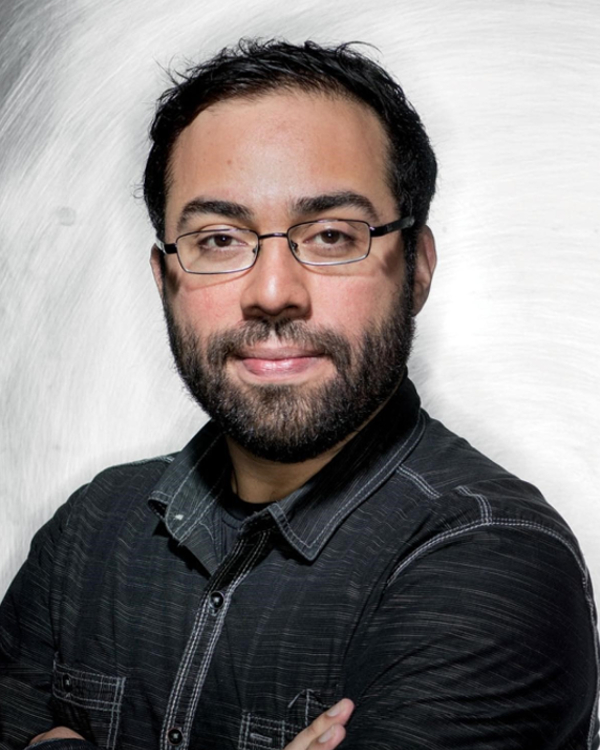
Steve Ramirez, Ph.D.
Boston University
Project Title: Single-Cell and Target-Specific Resolution of Multiple Memories Across the Brain
Grant ID: R01-HD101402
MPI: Christine Ann Denny, Ph.D.
Steve Ramirez is an Assistant Professor of Brain and Cognitive Sciences at Boston University and a former Junior Fellow of Harvard University. He received his B.A. in neuroscience from Boston University and began researching learning and memory in the laboratory of Howard Eichenbaum. He went on to receive his Ph.D. in neuroscience in the laboratory of Susumu Tonegawa at MIT, where his work focused on artificially modulating memories in the rodent brain, and his current work focuses on leveraging these manipulations to alleviate symptoms associated with psychiatric diseases. Steve has also received an NIH DP5 award and an NIH Transformative Award, the Smithsonian's American Ingenuity award, National Geographic's Breakthrough Explorer prize, Forbes and Technology Review's Top 35 Innovators Under 35 award, a McKnight Foundation award, and has given two TED talks.
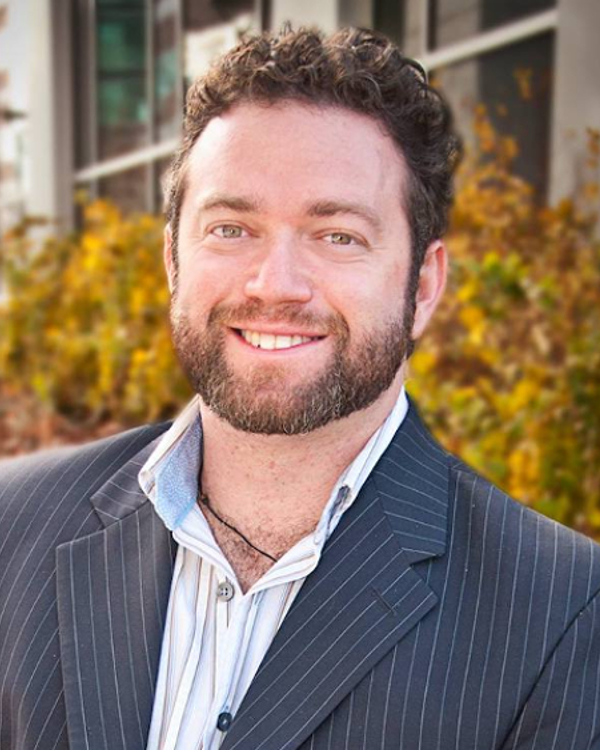
Jason D. Shepherd, BSc (Hons), Ph.D
University of Utah
Project Title: Virus-Like Intercellular Communication in the Nervous System
Grant ID: R01-NS115716
MPIs: Edward Campbell and Thomas Gallagher
Jason Shepherd is an Associate Professor in the Department of Neurobiology and holds the Jon M. Huntsman Presidential Chair at the University of Utah. He obtained his BSc (Hons) at the University of Otago, his Ph.D. at the Johns Hopkins School of Medicine and postdoctoral training at the Massachusetts Institute of Technology. The Shepherd lab focuses on elucidating how the brain stores information from the molecular level through in vivo neuronal networks, and how these processes go awry in neurological disorders. He is the recipient of the Peter and Patricia Gruber International Research Award in Neuroscience, the International Society for Neurochemistry Young Investigator Award, the Chan Zuckerberg Initiative Ben Barres Early Career Acceleration Award, and is a National Academy of Sciences Kavli Fellow.
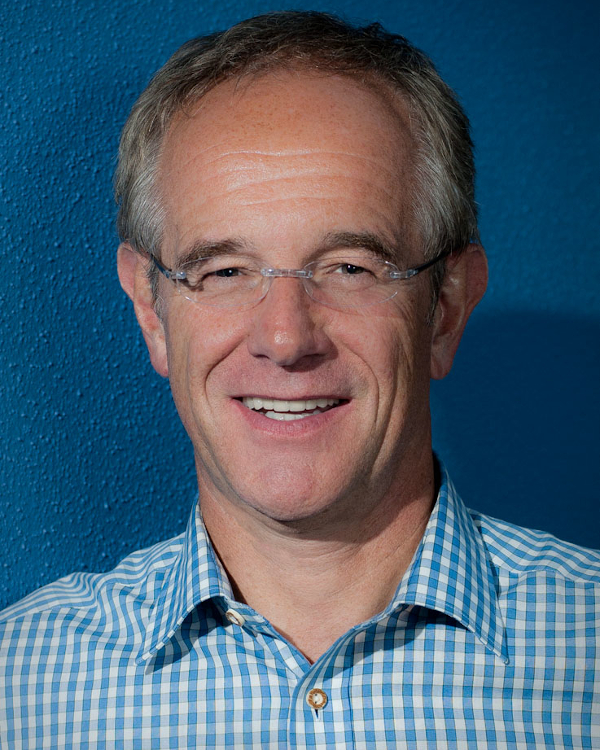
Eric Verdin, M.D.
Buck Institute for Research on Aging
Project Title: Genetic Dissection of Trait Variation Between Long-Diverged Mouse Species
Grant ID: R01-NS116992
MPIs: Diana M. Bautista, Ph.D., Rachel B. Brem, Ph.D., and Lisa Ellerby, Ph.D.
Dr. Verdin is the president and chief executive officer of the Buck Institute for Research on Aging. A native of Belgium, Dr. Verdin received his Doctorate of Medicine (MD) from the University of Liege and completed additional clinical and research training at Harvard Medical School. He has held faculty positions at the University of Brussels, the National Institutes of Health (NIH), and the Picower Institute for Medical Research. Dr. Verdin is also a professor of medicine at University of California, San Francisco. Dr. Verdin studies how metabolism, diet, and small molecules regulate the activity of HDACs and sirtuins, and thereby the aging process and its associated diseases, including Alzheimer’s Disease.


